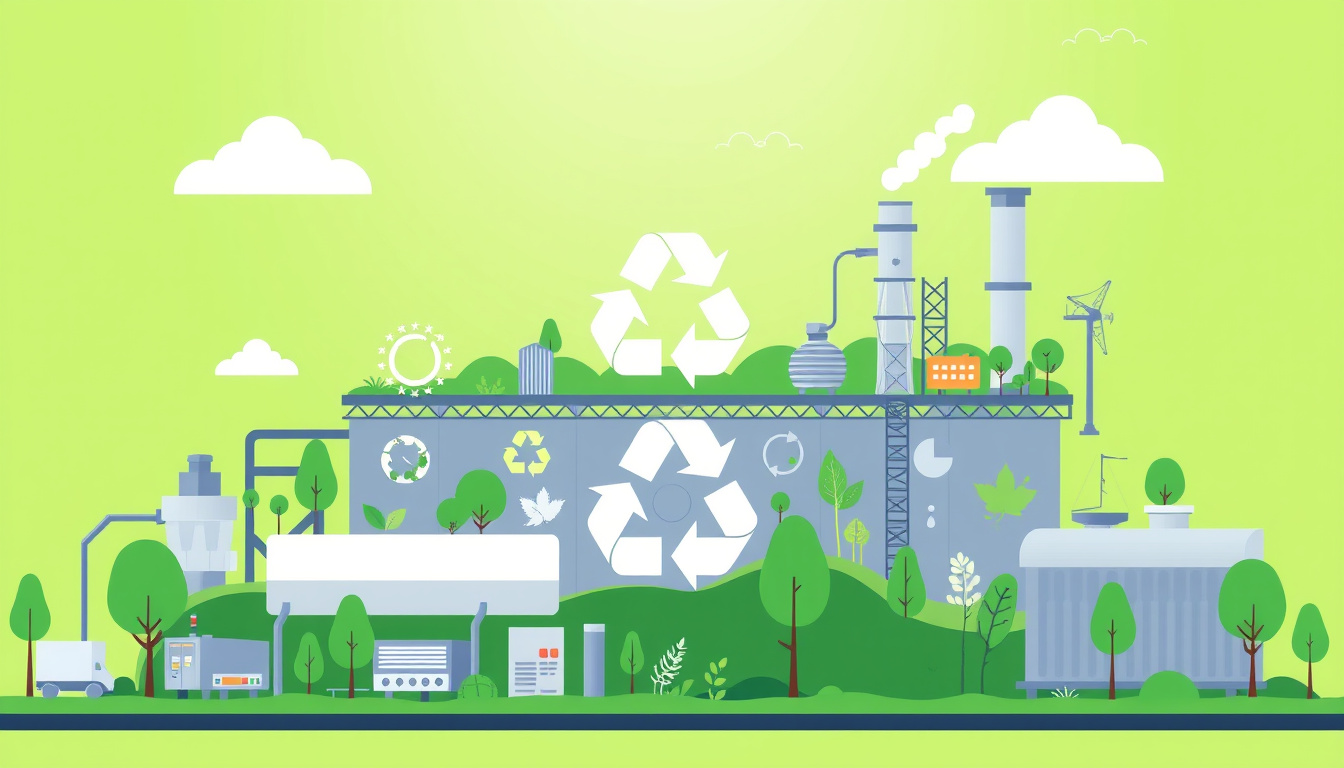In today’s world, the importance of sustainable practices cannot be overstated. Among these practices, metal recycling stands out as a crucial process that benefits both the environment and the economy. As the demand for metals like aluminum, copper, and steel continues to grow, understanding how metal recycling contributes to a more sustainable future is essential. This article explores the various ways metal recycling positively impacts our planet and society, urging industries and individuals alike to embrace this eco-friendly cycle.
What Is Metal Recycling?
Metal recycling involves collecting used metal products—such as cans, appliances, and industrial waste—and processing them to produce new metal materials. This process reduces the need for mining raw ore, conserves natural resources, and minimizes environmental pollution. The recycled metals are often melted down and reshaped into new products, allowing for a continuous reuse cycle that significantly cuts down waste.
Environmental Benefits of Metal Recycling
1. Conservation of Natural Resources
Mining for new metals is an energy-intensive process that depletes finite natural resources. Metal recycling dramatically reduces this dependency. For example, recycling aluminum scrap saves up to 95% of the energy required to produce new aluminum from bauxite ore (source). This preserves natural resources such as minerals and reduces environmental degradation caused by mining activities.
2. Reduction in Energy Consumption
Producing metals through recycling consumes significantly less energy than extracting and refining new metal. This energy efficiency leads to a considerable reduction in greenhouse gas emissions, which are responsible for climate change. In fact, recycling steel saves about 60-74% of the energy compared to primary production (source).
3. Decreasing Landfill Waste
Discarded metal products occupy substantial space in landfills and can take decades or even centuries to decompose. Recycling prevents metals from ending up in landfills, which helps reduce land pollution and toxicity concerns.

4. Lower Carbon Footprint
By decreasing energy usage and resource extraction, metal recycling contributes to lowering overall carbon emissions. These efforts are vital in combating global warming and achieving climate goals.
5. Limiting Environmental Pollution
Mining and processing metals can release harmful chemicals and toxins into air, water, and soil. Metal recycling limits these pollutants, safeguarding ecosystems and public health.
Economic Benefits of Metal Recycling
1. Cost Savings for Industries
Recycling metals often costs less than producing new metals from raw materials. Companies saving on raw material costs can pass these savings to consumers and reinvest in innovation and expansion.
2. Creation of Jobs
The metal recycling industry is labor-intensive, creating a wide range of employment opportunities. From collection and processing to manufacturing, the sector provides jobs for thousands worldwide, stimulating local economies.
3. Market Growth and Investment Opportunities
As demand for sustainable products increases, the metal recycling industry presents promising investment prospects. Governments and private sector investments in recycling infrastructure contribute to economic resilience.
4. Enhanced Resource Security
Recycling reduces dependence on imported raw materials, increasing national resource security and stabilizing supply chains.
How to Participate in Metal Recycling
Individuals and businesses can contribute meaningfully to metal recycling efforts. Here are simple steps everyone can take:
- Separate recyclable metals such as aluminum cans, scrap metal from DIY projects, and old appliances.
- Educate and advocate for recycling programs in your community.
- Partner with local recycling centers for safe collection and disposal.
- Prioritize recyclable materials in manufacturing, construction, and packaging.
Top 5 Items for Metal Recycling
- Aluminum cans
- Steel appliances
- Copper wiring
- Automobile parts
- Scrap metal from construction projects
Implementing Effective Metal Recycling Practices
Establishing an efficient metal recycling process involves several key steps:
- Collection: Gathering scrap metals from various sources.
- Sorting: Separating different types of metals to ensure quality.
- Cleaning: Removing contaminants such as paint, plastics, or dirt.
- Processing: Melting and reshaping metals into usable forms.
- Distribution: Supplying recycled metals to manufacturers.
Investing in modern sorting and processing technology increases efficiency and purity, ultimately leading to higher-quality recycled products.
Challenges Facing Metal Recycling
Despite its numerous benefits, metal recycling faces challenges such as:
- Contamination of scrap metals, which affects recycling quality.
- Fluctuating metal prices can influence recycling profitability.
- Limited collection infrastructure in some regions.
- Lack of awareness among consumers and small businesses.
Addressing these obstacles requires collaborative efforts from policymakers, industry leaders, and communities.
The Future of Metal Recycling
The global push toward sustainability and circular economies promises a bright future for metal recycling. Innovations in automation, material recovery, and eco-friendly melting technologies are enhancing efficiency. Additionally, stricter regulations and increasing consumer awareness will likely lead to higher recycling rates worldwide.
According to the International Renewable Energy Agency (IRENA), scaling up metal recycling could significantly reduce the environmental footprint of the energy-intensive metal industry, aligning with global climate objectives.
Frequently Asked Questions (FAQs)
Q1: How does metal recycling benefit the environment?
A1: Metal recycling conserves natural resources, reduces energy consumption, minimizes landfills, lowers greenhouse gas emissions, and decreases pollution, thus helping protect ecosystems and public health.
Q2: What are common metals that are recycled?
A2: Commonly recycled metals include aluminum, copper, steel, iron, and lead. These metals are valuable and widely used in various industries.
Q3: How can individuals contribute to metal recycling?
A3: Individuals can participate by collecting and properly sorting recyclable metals like aluminum cans and old appliances, supporting local recycling initiatives, and reducing unnecessary waste.
Conclusion: Embrace Metal Recycling for a Sustainable Future
Metal recycling is more than just a waste management practice—it’s a vital component of environmental stewardship and economic resilience. By choosing to recycle metals, industries and individuals alike are championing a cleaner planet, conserving precious resources, and creating jobs that boost local economies. The cumulative impact of these efforts advances us toward a circular economy where sustainability and prosperity go hand in hand.
Join the movement today: start recycling your metals, support policies that promote responsible waste management, and educate others about the power of metal recycling. Every scrap recycled is a step towards a healthier planet and a stronger economy. Together, we can make a difference—one metal piece at a time.
Junk Guys Orange County
Phone: 949-629-4960
Website: www.junkguysoc.com
Email: junkguysoc@gmail.com
